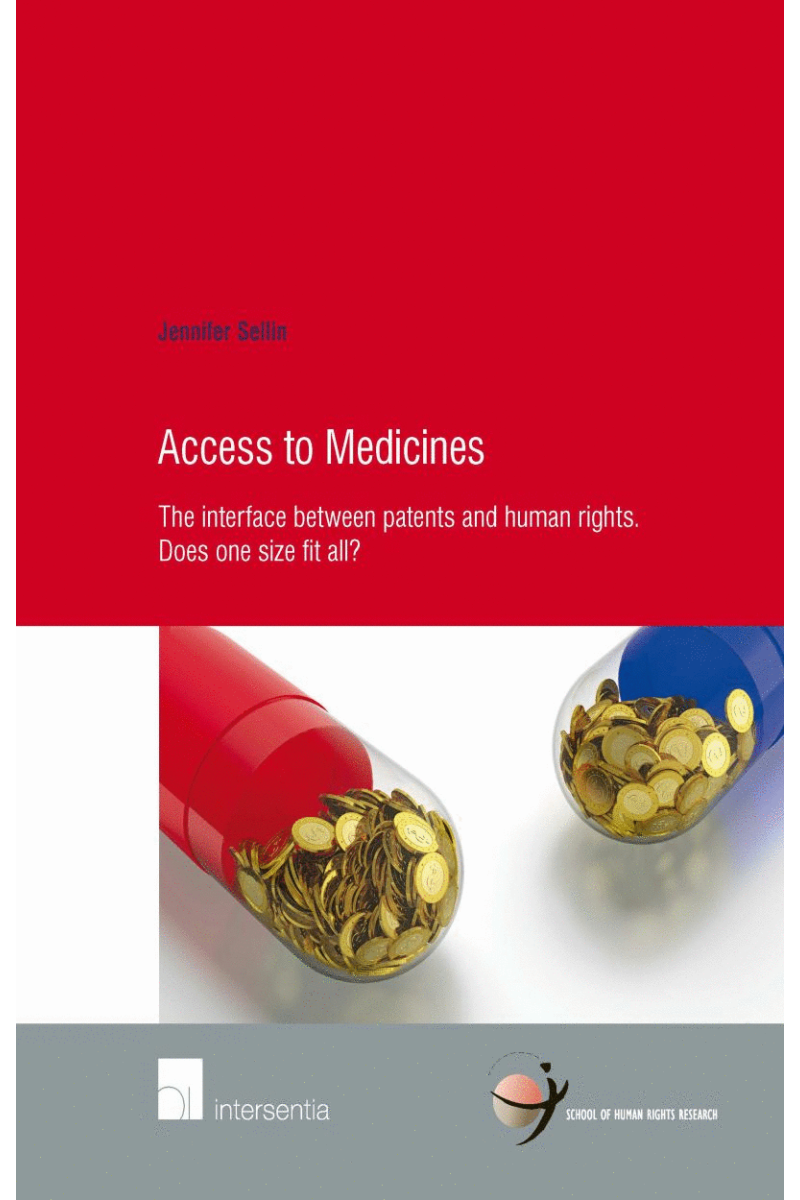 maestro
mastercard
visa
maestro
mastercard
visa

Access to Medicines
The Interface between Patents and Human Rights. Does one size fit all?

Millions of people worldwide lack adequate access to medicines, particularly in developing countries where resources are scarce with devastating human, social and economic consequences. The example of HIV/AIDS, for which treatment has advanced so significantly in the last decade that a diagnosis no longer necessarily brings with it a death sentence, highlights the importance of ensuring that essential medicines are affordable and accessible to all.
This book focuses on one aspect of access to medicines: the affordability of essential medicines, and its connection to human rights and patents. The argument often made is that patent protection for medicines results in higher prices which negatively impacts access. Patients having no or inadequate access to affordable medicines endangers the full realisation of human rights, particularly the right to health. This book investigates this issue from a legal perspective, taking both an international and domestic angle.
This study examines the interface of access to affordable medicines and patent protection from the perspective of international human rights law and the Agreement on Trade-Related Aspects of Intellectual Property Rights (TRIPS) within the framework of the World Trade Organisation. The essential question posed by this book is whether access to medicines and patent protection conflict or coexist.
The discussion is deepened by including a developing country approach. Three country studies have been conducted, on South Africa, India and Uganda. These aim to provide a concrete insight into whether these countries recognise and acknowledge the interplay between patents and human rights with respect to access to medicines. Secondly these studies examine whether TRIPS leaves sufficient freedom for (developing) states to adopt a patent system suited to their domestic needs, enabling them to strike a fair balance between access to medicines and patent protection for medicines. In other words: does one size fit all?
This book is targeted at both academics and human rights practitioners, including government officials, human rights advocates and NGOs. It goes further than a mere theoretical discussion on the issue from an international law perspective by providing an in-depth examination of domestic (legal) frameworks relevant for the issue of access to medicines. It illustrates that the normative force of human rights in combination with social movement can provide a powerful tool for prioritising the health needs of the global poor.
| Type of product | Book |
|---|---|
| Format | Paperback |
| EAN / ISSN | 9781780682471 / 9781780685083 |
| Series name | Human Rights Research Series |
| Weight | 862 g |
| Status | Available |
| Number of pages | xvi + 494 p. |
| Access to exercice | No |
| Publisher | Intersentia |
| Language | English |
| Publication Date | Jun 25, 2014 |
| Available on Strada Belgique | No |
| Available on Strada Europe | No |
| Available on Strada Luxembourg | No |
Downloads
- Table of Contents
- Part I. Method and Problem Statement
- Chapter 1. Introduction & Methodology
- Chapter 2. Access to Medicines: the Problem
- Part II. International Framework
- Chapter 3. A Human Right of Access to Medicines?
- Chapter 4. The TRIPS Agreement: Patent Protection for Pharmaceuticals
- Chapter 5. The Interface between Patents and Human Rights in the Context of Access to Medicines
- Part III. Country Studies
- Chapter 6. Access to Medicines in South Africa
- Chapter 7. Access to Medicines in India
- Chapter 8. Access to Medicines in Uganda
- Chapter 9. Findings, Conclusions and Recommendations
- Bibliography
- Curriculum Vitae